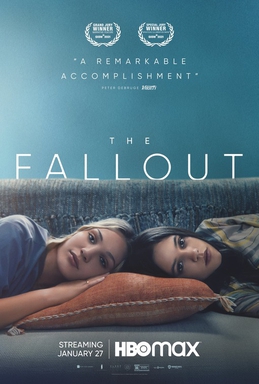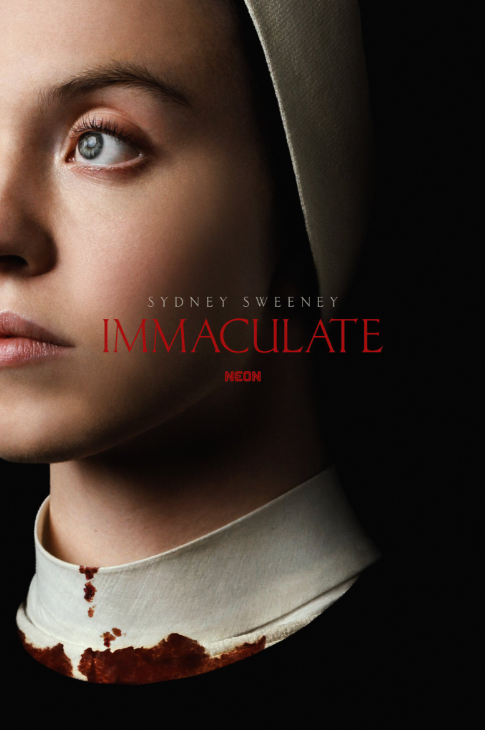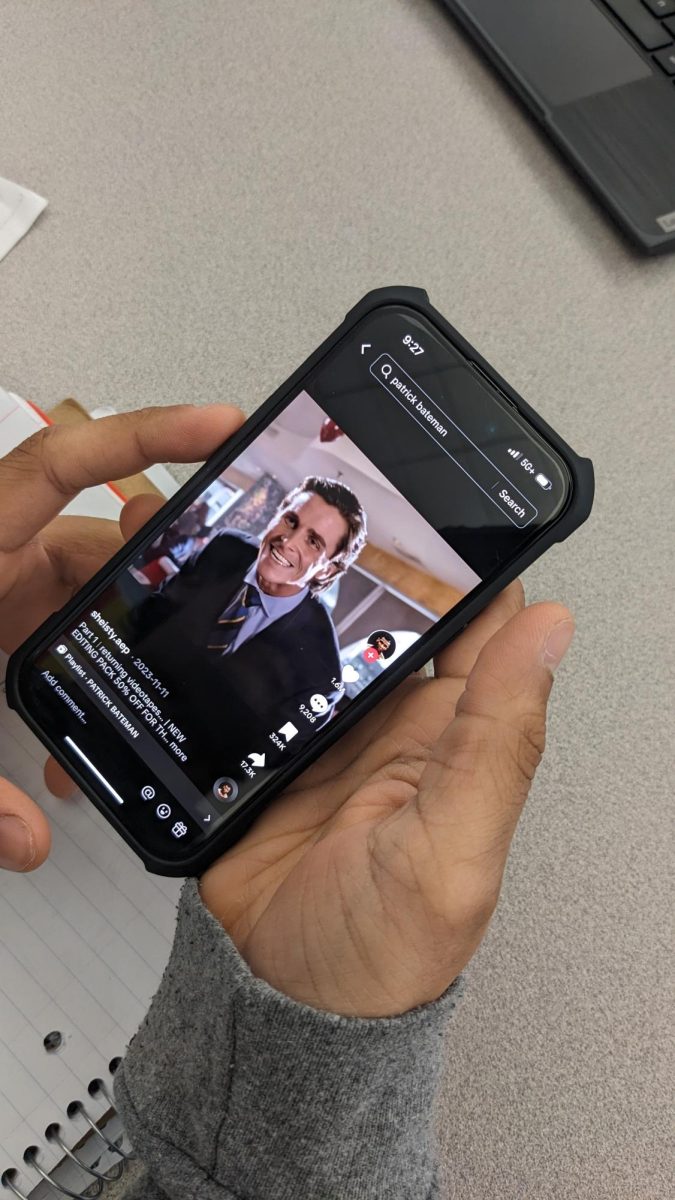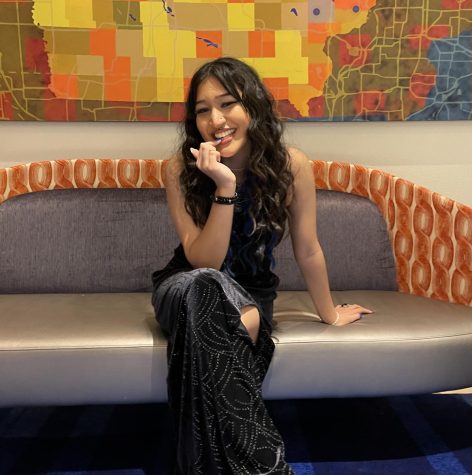Released in select theaters across the United States on March 18. 2022, “X,” A24’s newest horror movie, directed by slow-burn horror filmmaker Ti West, has left unique impressions on its audience.
The ‘70s-inspired slasher almost seamlessly pays homage to horror of the decade, “with visually stunning shots that define A24 filmmaking and the effortlessly sinister feel integral to West’s work.
Viewers follow adult-movie actress Maxine, her quasi-manager boyfriend and their rag-tag group of actors and filmmakers to a boarding room on a rural Texan farm where they hope to produce a hot home-video that makes a break-through in the market. Unfortunately, the couple renting out the land to them are not as welcoming as they expected.
Following a slow build-up of strange interactions between the tenants and the owners, the old woman catches the team in the act. Then, in a “Chainsaw Massacre”-esque series of events, the gang finds themselves in a sticky situation, dying off one by one and trying to escape the owners, who are trying to kill them.
Despite its semi-engaging plot, gorey kills and pretty ‘70s-style visuals, “X” seemed to be lacking in several areas. The film feels as though West cheaply attempted to create an elevated version of ‘70s horror classics. He cannot pick a side – is this a stupid slasher or a social commentary? If the former, it gets the job done. If the latter, audiences will be disappointed.
Any deep message is mostly lost. West plays around with themes of sex, desire, youth, aging and more but never commits to any of them, leaving an obscure, unintelligable message – or no message at all.
It is not that “X” is not fun. Its sexy scenes with a side of murder provide a riveting experience to the average viewer, as long as they do not look too hard for a nuanced meaning.
When trying to understand a character’s commentary within a text, it is important to look at the victims, the villains and the characters’ motivations.
One way West flips the narrative of the classic slasher is by portraying the male victims as more foolish and killing them off first. While this is not a new strategy, it is still a subtle, respectable way to shake off negative female stereotypes in the horror genre.
Although the villains in “X” are old people, which is a common trope in horror, West continues to subvert expectations of the genre by eliciting sympathy in the viewers through slight looks into the villains’ pasts and motivations.
It feels as though West’s commentary about sexuality, desire and aging is awkwardly littered throughout the film but never fully fleshed out. Sex is natural and fun, so people should not be ashamed of it? And old people repress their sexuality and desire which makes them bitter and evil?
Senior horror lover Heath Rice explained what he perceived the message of the film to be. “I felt it was supposed to show a deeper connection with a view on new society and norms versus traditional radicals,” he said. West strategically shows a sermon playing on the couples’ TV throughout the film to subtly emphasize the traditional values held by the elderly people in the film in contrast to the young adults’ wild and free behavior.
While these ideas are interesting, West only teases them to the audience. Perhaps the confirmed prequel “Pearl” will provide the necessary backstory for the killers’ motivations and help West get his point across better.
Titled after the old woman in “X,” the hope is that “Pearl,” expands on West’s current mild social critique on the importance society places on a woman’s ability to be desired, how those pressures affect those women psychologically and the anxieties society feels towards vengeful, powerful femininity.
Although feminism is not always the first thing that comes to mind when one thinks about horror, femininity and the horror genre have been closely intertwined in art, film and literature since the beginning of humanity.
Horror is based on fear, and throughout history, that which relates to women has been feared. One can recall an ancient Babylonian creation myth detailing the killing of an evil, enraged goddess by the triumphant king of gods. In a symbolic sense, femininity can be equated with chaos and darkness, while masculinity represents the order and lightness that rises above and rids humanity’s fear and strife.
Thought to be written sometime during the 7th century, the ancient epic poem “Beowulf” details the story of a man-hating monster terrorizing a kingdom. After it is killed, its mother comes for revenge and the fear she invokes in men is characterized as female. Femininity itself is othered as an abject horror meant to frighten and disgust.
Femininity is framed as horrifying, but is it actually deserving of such a conception? Some argue that historically, femininity has been purposefully illustrated to evoke terror in order to reinforce patriarchal values.
In any case, authors and directors today often instill fear into audiences through vengeful female characters in horror who enact revenge because of the oppression they have faced due to men.
For example, the main character in “Jennifer’s Body” becomes a man-eating monster after experiencing violence at the hands of men. Written and directed by women, the comedic horror develops commentary on how society creates its own monsters, in this case through misogyny, while still giving its female characters room to be multifaceted and more than just symbols for a societal message.
Writers and filmmakers also convey fear through femininity in horror by giving power to female characters. What could be more frightening than a woman who has been wronged by patriarchal values and wants revenge?
Possibly a woman with agency who desires power and is fully capable of being powerful, unrelated to the influence of men, a woman who is sexually active, a promiscuous female character who is not punished by death and an intelligent women who is not killed off first. English teacher Robyn Samuelson commented on the intersection of femininity and horror in various forms of media.
“There is more room in contemporary film for strong female protagonists that are not necessarily pushed out of society. That space is newly emergent, and we see more females embody the hero of the story,” she said. “We still as a society easily push aside those things that threaten traditionally held values. While young women want to see themselves in these roles of power, there is a contingency of people who don’t like that because it’s not traditional.”
All of these connections between femininity and horror help explain why women have written some of the best horror and mystery stories. Alfred Hitchcock’s 1963 horror-thriller “The Birds” is adapted from an original novel written by Daphne Du Maurier, a female novelist with supernatural stories that perhaps were not always taken seriously due to their romantic nature.
Mary Shelley’s “Frankenstein,” Shirley Jackson’s “The Haunting of Hill House” and Natsuo Kirino’s “Out” are just a few of the many popular horror stories written by women, but the list of quality texts created by women or centering them is lengthy.
Whether it is an artist’s portrayal of dangerous femininity, a damsel in distress for audiences to fear for or just powerful female characters, women and femininity have and will continue to be irrevocably connected to horror.
Samuelson enjoys horror more when it has a sort of social element to it. “I like it when the manifestation of the horror is symbolic of some social thing that is being repressed,” she commented.
“X” tries to play around with this concept and fails, but perhaps West can improve his commentary in his sequel. It is a common element of femininity in horror films that makes them so intriguing to audiences.
Additionally, it proves why some of the most critically acclaimed horror is created by marginalized groups. Those who have experienced the true horrors of the world — the fear, disgust and pain of suffering at the hands of oppressors — can tap into the sociological and psychological impacts of their othering and use that to create art.

















